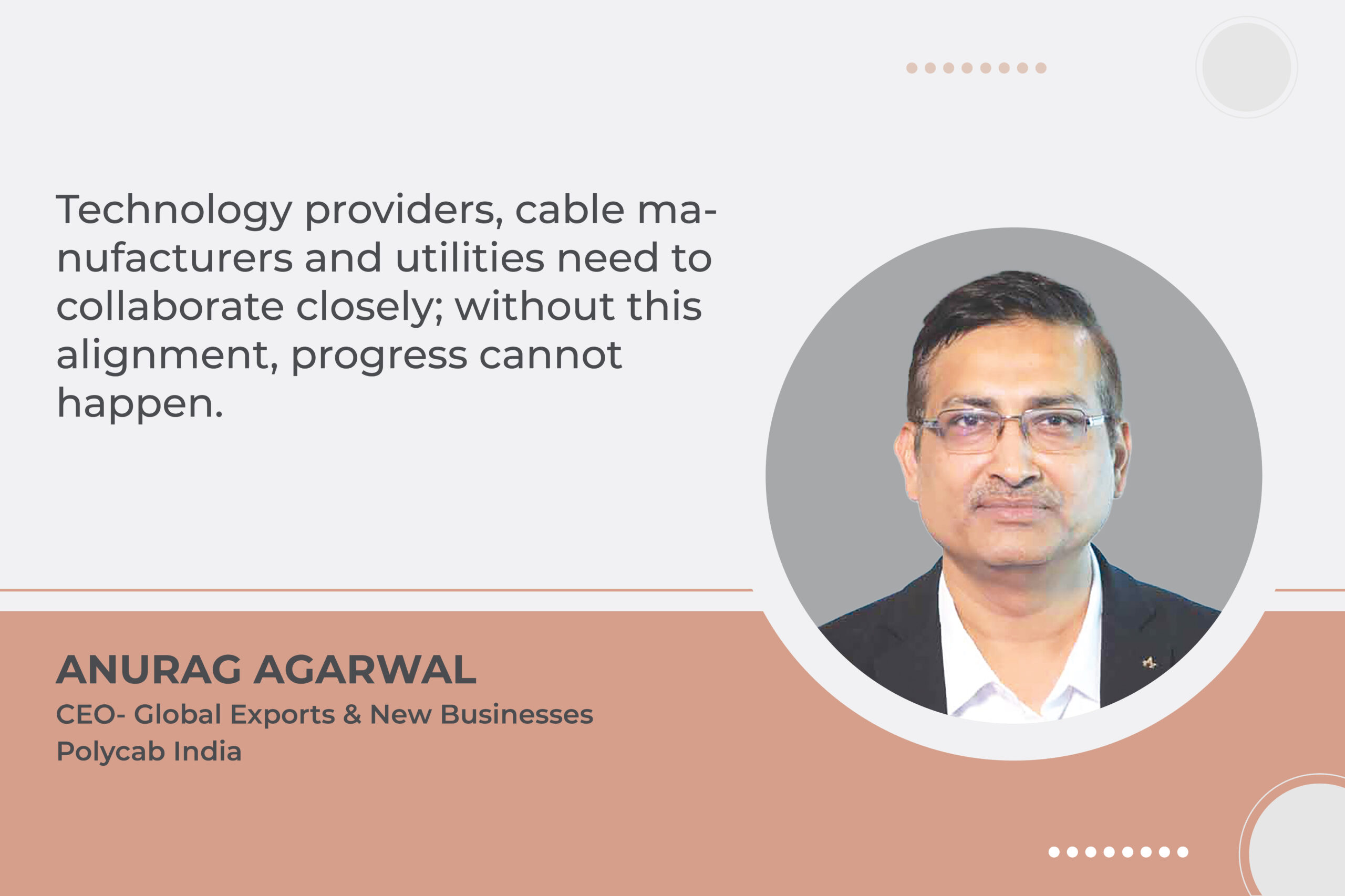Polycab brings utility-grade solar inverters
By Staff Report September 26, 2025 5:03 pm IST
By Staff Report September 26, 2025 5:03 pm IST

Technology providers, cable manufacturers and utilities need to collaborate closely; without this alignment, progress cannot happen.
With the surge in renewable energy, nuclear expansion, and the growing need for advanced infrastructure, the wires and cables sector is evolving rapidly. Industry leaders like Polycab are not only supplying products but also delivering integrated solutions, ranging from high-voltage cables and conductors to solar inverters. Anurag Agarwal shares insights about the industry and Polycab strategies in an exclusive interview with EPR.
How is Polycab transitioning from a product-focused company to a solution-oriented provider with cables, conductors, and solar inverters?
Polycab has traditionally focused on product manufacturing and supply, but we are now transitioning towards a solution-oriented approach. In the cable segment, we are introducing high-voltage accessories as part of our new offerings. As part of this solutioning approach, we will provide certified Polycab jointers to handle jointing, termination, and laying work using our cables and jointing kits. Unlike current warranties of two to three years, we aim to extend cable warranties up to 20 years, reflecting the comprehensive end-to-end solution we are offering.
Additionally, we are launching advanced overhead conductors, including high-temperature, low-loss, and low-sag variants with superior ampacity, which will be operational in the next financial year. Finally, we are introducing utility-grade solar inverters, complementing our renewable energy offerings. These three initiatives—solutionised cable services, high-performance conductors, and solar inverters mark a significant evolution in Polycab’s business model.
How can India reduce its import dependence on metals and polymers to strengthen its cable industry?
Regarding import dependence, India remains heavily reliant on imports for both metals and polymers, which are essential components for cable production. The country is a net importer of base polymers and a significant importer of base metals, which makes self-sufficiency challenging. This situation will persist unless the government takes decisive action to accelerate domestic production of primary metals and polymers. Only with substantial growth in local manufacturing can India reduce import dependence and strengthen its cable industry resilience.How can manufacturers and utilities collaborate effectively to advance technology-intensive projects?
For the energy ecosystem to succeed, all stakeholders must work in unison. Technology providers, cable manufacturers, and utilities need to collaborate closely; without this alignment, progress cannot happen. Utilities must adopt new technologies, while cable manufacturers must invest in developing practical, deployable solutions. Only through such coordinated efforts can innovations effectively reach the market.
Sub-sea cables, in particular, are highly technology and capital-intensive. For manufacturers like us, who lead the market, investment decisions depend on long-term confidence from the government. If the government partners with industry leaders like us and commits to supporting the technology, for example, through long-term agreements of 30 years, then we are prepared to make significant investments, driving growth and advancing infrastructure capabilities.
How can the government facilitate long-term private sector participation in India’s expanding nuclear power sector?
The wires and cables sector is expanding rapidly across India, and as an industry leader, we have scaled operations across solar, wind, hydro, and nuclear projects. In the nuclear sector, India operates two types of reactors, and Polycab has developed and supplied all kinds of cables for both, ensuring seamless supply with no constraints on the supply side. The primary challenge lies downstream, where long-term tie-ups are required, a gap the government needs to address. Currently, NPCIL is the sole developer in the nuclear sector, making it imperative for the government to open the sector to private participation. Companies like Adani, GE Vernova, and L&T have already prepared to enter nuclear positioning themselves to capitalise on future opportunities as the sector gradually expands.
We use cookies to personalize your experience. By continuing to visit this website you agree to our Terms & Conditions, Privacy Policy and Cookie Policy.